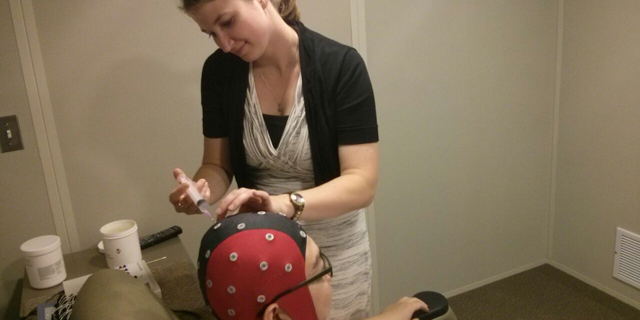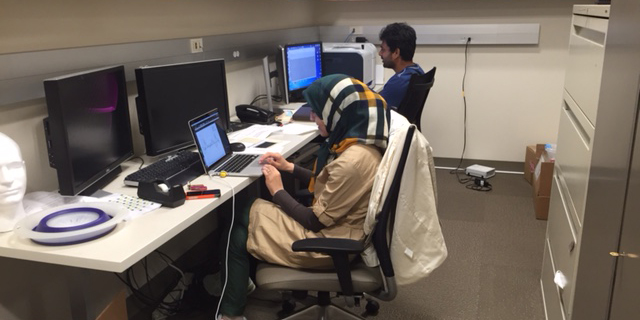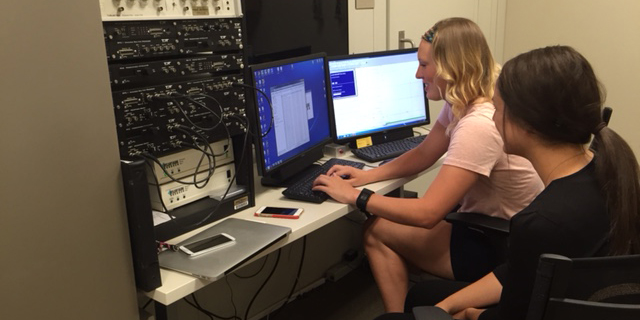Welcome to the Auditory Electrophysiology Lab at Purdue University!
Our current research focuses on two sets of experiments related to neural encoding of voice pitch and speech spectra at the level of the auditory brainstem (using the frequency following response) and auditory cortex (using the cortical pitch response). This research is funded by the National Institutes of Health:
Experience-dependent plasticity for pitch representation in the brainstem and auditory cortex
Our lab was the first to report that long-term language experience influences pre-attentive stages of pitch processing at both the brainstem and cortical levels by enhancing the representation of linguistically relevant dimensions of pitch. The long term objective of this research program is to advance our knowledge of how pitch mechanisms in the auditory brainstem and at early sensory stages of processing in the auditory cortex reorganize with experience, and to determine their role in the hierarchical processing of the temporal structure of sound. We are also interested in evaluating the nature of interplay between early sensory level processes and later cognitive level of processing, specifically, if later cognitive level processing modulates early sensory level processing.
Neural encoding of speech in normal and impaired ears
The long-term research objective of these experiments is to evaluate the nature of neural representation of speech-like sounds in normal-hearing and hearing-impaired individuals in an effort to determine the perceptual consequences of degraded neural representation resulting from cochlear impairment and adverse listening conditions. Knowledge about the characteristics of neural representation of speech in normal and hearing-impaired individuals may shed light on the acoustic features of speech sounds that are important in their identification and the nature of the degradation in representation of these features. Evaluation of several strategies to enhance acoustic features may provide us information about signal processing strategies that will optimally recover degraded representation that may be implemented in hearing prosthetic devices.






